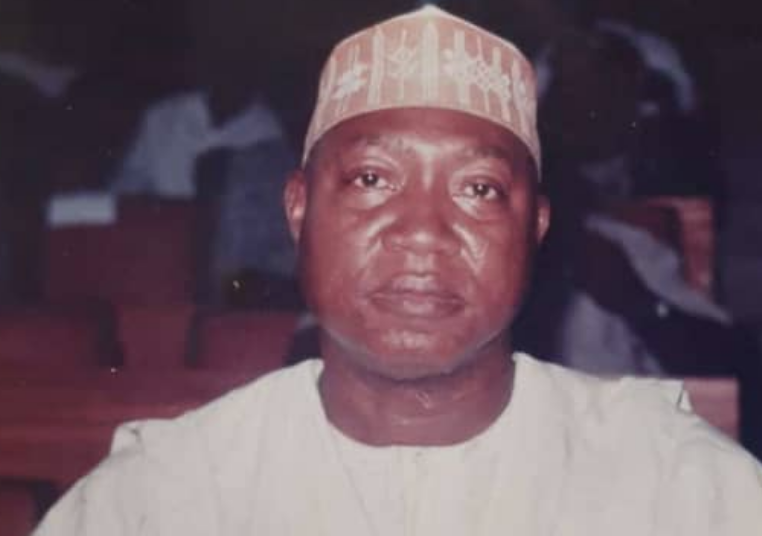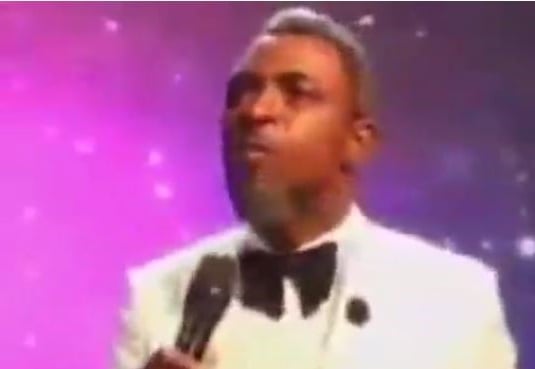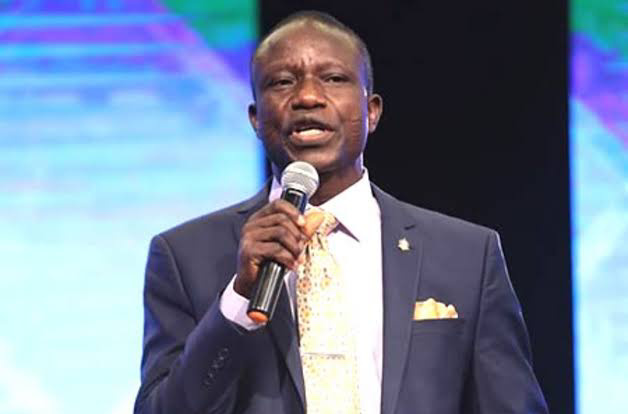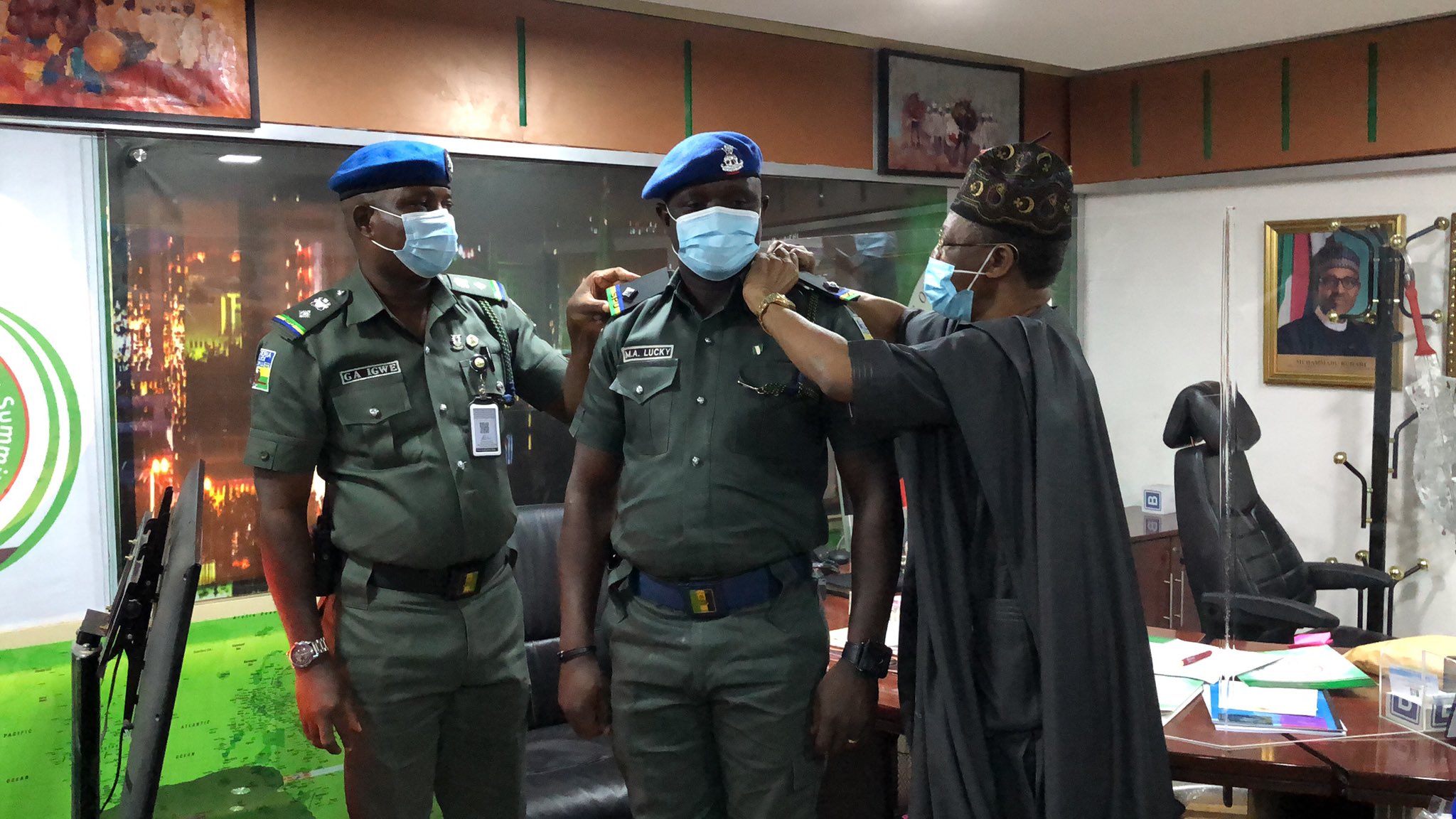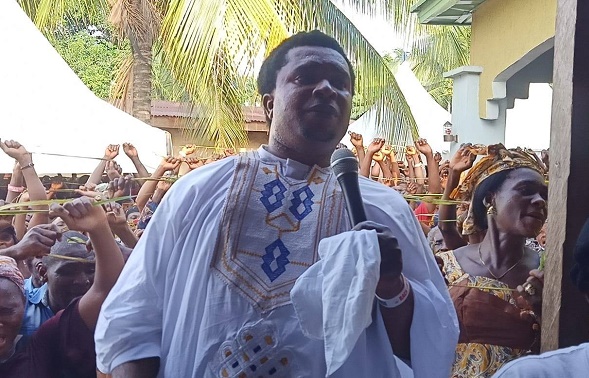BY OJI ONOKO
He was very emphatic about the title of the proposed book. With flourish, he announced: “Before My Obituary.” I nearly jumped out of my seat. I was sitting opposite him in his well-furnished office on Kigoma Street, Wuse Zone 5, Abuja, that Tuesday evening. I looked at him again. He was his usual calm self, a smile even playing on his lip. How could he have come up with such a title for his autobiography which he just graciously ceded to me to write.
I panicked as the import of the title hit me with a thud. This was morbid, indeed scary. The nearest I could recall to the title he was suggesting was the book, “Working Stiff” by Judy Melinek and T. J. Mitchel which the New York Times notes: “pulls back the sheet to show readers just what goes on after someone dies…” But the authors are medical examiners. And a medical examiner as my Google search reveals: “investigates death that occurs under unusual or suspicious circumstances…” He was in Culture, a field far removed from this. His was an effervescent world dealing with real people, their beliefs, ideas, customs and behavior.
The more I tried to dissuade him from the title, the more insistent he became. I was later to learn from his nephew, Dele Adewumi that his uncle had had the title of the book long before our discussion…
The aptness of the title later struck me and the sheer ingenuity of J. B. Yusuff in coining it. Who wouldn’t want to pick up a book of that title especially when the subject was still alive? It would create a buzz. In journalism parlance, this would be a “screaming headline” that makes readers eager to grab a copy.
Advertisement
All I needed do then were to come up with the Outline, draw up Questionnaires, set up interview schedules with the subject, establish clear timelines for literature review, transcribing, writing and finally publishing. As simple as these steps were, I never got around taking any until he passed on! And I had on my palm, the undulating career of the subject from the Federal civil service to the State; back to Federal service and working in three different parastatals besides interrogating his early life, education, family life among others. Perhaps I felt there was enough time to do that. We did see many more times after our initial meeting on the book while he was still Chief Executive at the National Institute for Cultural Orientation (NICO) and after his retirement. We talked about other things, not the book. Alas, I am only now realising that there is never enough time…
Our path crossed back in 1991 while I was a Staff Correspondent with Citizen magazine in charge of Back of the Book, a section devoted to Arts, Culture and Entertainment. I usually saw him on my way to interview or seek the views of the then Director/Chief Executive of National Council for Arts and Culture (NCAC), Dr. Sule Bello, now a Professor. We would chat casually and then I was off to my main assignment guided by the dutiful Head of Public Relations, William Ogbidi. But he struck me with his easy going lifestyle and affability.
It was, however, about a decade-and-a-half later, precisely in 2005 that we became really close. By then I had completed my tour of duty in journalism: Deputy Editor (Daily) in Thisday and Member, Editorial Board, Daily Sun among other positions and set up a media consultancy firm operating from Lagos. He had also been appointed Acting Executive Secretary, NICO. In this instance, I came to Abuja and without notice sauntered into the waiting room of his office. Beaming with his trademark smiles, he ushered me in, a few minutes later. He asked how I was doing and listened attentively as I reeled off one problem to the other. I must confess that my foray into media consultancy could have flailed, floundered and perhaps fallen without his support. This was taken to a higher notch when his appointment was confirmed in 2006.
Advertisement
He invited me to Abuja throughout his tenure to handle the media component of NICO’s programmes. This exposed me to his passion for cultural re-awakening for Nigeria and Nigerians. He was concerned about the moral decadence pervading the country perpetuated by the youth and adults alike and proselytized on the need to change our course. He thus developed a series of Sensitisation programmes which took place in Jos, Akure, Lagos and Abuja among other towns in Nigeria. Instructively, one of the books he edited is titled, “Culture and Morality in Nigeria.”
He was equally meticulous in record keeping in the manner of a professional archivist or documentarian. He kept neatly in different files, personal and official documents from his days in primary school to as late as 2020! Thanks to him, I was able to retrieve my write-ups in the Citizen magazine dating back to the early 1990s.
B. Yusuff saw everyone as equal and endeavoured to treat people whether high or low with respect. His high office did not insulate him from the plight of ordinary people and he sought ways to ameliorate their condition. Unsurprisingly, he put in place an annual scholarship scheme for indigent students in his hometown of Isolo–Opin in Ekiti Local Government Area of Kwara State while in service and sustained it till his passing.
He did not just preach equality for all, he lived it. He had no airs as a Chief Executive and would gladly ride in my old Mercedes 230 which had no air-conditioning from Airport Hotel, Ikeja, where he normally lodged anytime he was in Lagos to NICO’s office in the National Theatre Annex, Iganmu, Lagos even though he could easily afford the “tear rubber” hotel car- hire services. He also preferred patronizing the food stalls opposite the hotel rather than the fancy restaurants inside. He would chat with the attendants heartily and would not leave without giving large tips. And that was where he told me how to identify an Igbo or Yoruba in an eatery!
Advertisement
“How?” I had asked.
“The Igbo will order one piece of meat with a large portion of eba, semo or fufu,” he replied, smiling. “But the Yoruba will request for a small ball of any of those with a plate full of assorted pieces of meat or large fish.”
It was an observation devoid of ethnic or tribal bias, as he had friends from all ethnic and religious divides in the country. And his wife, Queen, is from my home State, Delta. I used to tease him that as my In-Law he was yet to present my dowry wine to which both of us would break into laughter…
He was so full of life, so vivacious, so boisterous. Just how could such a vibrant person succumb to the cold hands of death? How? He cheated death thrice. First, on his way to Ilorin in Ekiti State when the vehicle he was travelling in veered off to the bush almost squeezing the life out of them. Passersby used axe and other sharp implements to break the door before each was carefully pulled out with serious injuries. He was also at the Nyanya Motor Park, Abuja on April 14, 2014 to take a taxi to Ilorin when a bomb went off killing about a hundred and injuring several others. He spent about one week in hospital from the injuries sustained and trauma experienced. There was also an incident at AYA, Abuja when a reckless driver ran into his car from the opposite direction causing him serious bodily harm… He survived all.
Advertisement
So when I learnt he had taken ill, I was sure he would pull through. He had survived worse scenarios. But like Isiburu in Elechi Amadi’s play of same title lamented: “The crab swam across the mighty ocean but succumbed to a woman’s pot of soup,” life can be so ironical, so mysterious.
I am still trying to come to terms with the passing of J.B. Yusuff, my mentor, my counsellor, my friend. The hole is deep. Will it ever be filled? You were so compassionate, so caring. I dare say you were humble in service but courageous in fighting worthy causes. My Oga, I am sorry, this testament had to come after your Obituary. That was not our plan. You wanted it Before your Obituary. But as a thinker, you know things do not just go the way we wish. I have to let go even though, my heart still bleeds…
Advertisement
Onoko wrote from Abuja.
Advertisement
Add a comment
